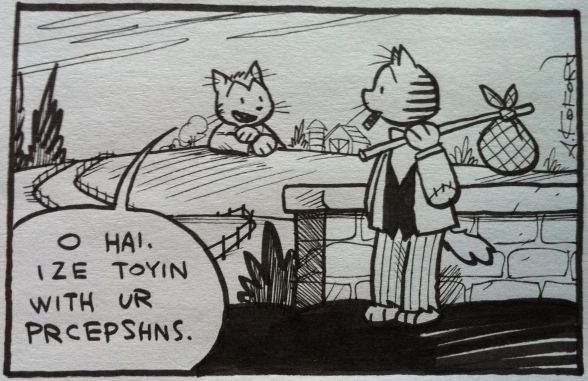Threshold: Volume 1: The Collected Stories of Roger Zelazny, ed. Grubbs, Kovacs, Crimmins. Yes.
My feelings are somewhat mixed about the opportunity to read my favorite writer’s complete short-fiction oeuvre: on the one hand, I have been hoping for fourteen years to see this collection put together, and am thrilled to bits to see it realized. On the other, I can’t help but recall Zelazny’s words in his introduction to The Last Defender of Camelot:
…I redden now or blanche (as the case [may] be) to read over much that I once considered adequate. For this reason, there are dozens of stories that I prefer keeping interred beneath bright covers in yellowing sheets, stories that I will never willingly see reprinted.
I’d like to think that he nevertheless would not begrudge me my joy at this event.
That said, I don’t think there’s much here to interest the casual reader. There is much biographical information, many poems, and—yes—a surprising (to me) number of stories that haven’t seen the light of day since I’ve been paying attention; but I suspect if you’re not already sure that you want to read it, you will not find the collection very compelling.
I am relieved to find that even Zelazny was not always good enough to sustain his intensely clever writing style, and felt a strong resonance with the following criticism from Theodore Sturgeon:
One feels at times that a few (a very few, I hasten to add) of his more vivid turns of phrase would benefit by an application of Dulcote (an artists’ material, a transparent spray which uniformly pulls down brightness and gloss where applied). Not because they aren’t beautiful—because most of them are, God knows—but because even so deft a wordsmith as Zelazny can forget from time to time that such a creation can keep a reader from his speedy progress from here to there, and that his furniture should be placed out of the traffic pattern. If I bang my shin on a coffee table it becomes a little beside the point that it is the most exquisitely crafted artifact this side of the Sun King. Especially since it was the Author himself who put me in a dead run.
It’s not so much something that has occurred to me when reading Zelazny’s work as a more general cautionary note: even if you’re good enough to show off (and you’re almost certainly not), don’t let it get in the way of the story.
The only technical problem I noted was that Zelazny (or his editor) used “latter” when “last” was indicated. I’ll be interested to see if that recurs in later writing.
